Description
About Mr. Humphrey’s Notebook
Humphrey In Mr. Humphrey’s memoirs, he recounts his story as a British spy in Islamic countries to serve British colonial purposes.
Who is Mr. Humphrey?
Humphrey is a British agent who has been tasked with conducting espionage operations in countries such as Egypt, Iraq, Iran, Hejaz and Istanbul, the center of the (Islamic) Caliphate, with the help of the British Ministry of Commonwealth.
This book consists of three parts. The first part, which consists of seven parts, presents the accusations of the British spy. The second part shows you how Britain carried out its insidious plans in Muslim countries.
But the third part of this book tries to awaken the poor Muslims who have been trapped by the Wahhabis by presenting credible documents.
In a part of Mr. Humphrey’s diary we read:
In 1122 AH, 1710 AD, the Minister of Commonwealth sent me to Egypt, Iraq, Hejaz and Istanbul to act as a spy and to obtain the necessary and sufficient information to dismantle and defeat the Muslims. The ministry appointed nine more agile and courageous people for this simultaneous mission.
In addition to the money, information, and maps we needed, we were provided with a list of names of statesmen, scholars, and tribal leaders. I will never forget the moment I said goodbye to the Secretary of State, he said: The future of our country depends on your success. So you have to spend your maximum energy.
I started my trip to Istanbul, the center of the Islamic Caliphate. In addition to my main task, my other task was to learn Turkish very well, which was the mother tongue of Muslims.
I had already learned a considerable amount of Turkish, Arabic (Quran) and Persian in London before, but learning a language is quite different from speaking that language as your mother tongue.
While the first skill can be acquired in a few years, the second requires several times as much time. I had to learn Turkish with all its subtleties so that people would not doubt me.
In Mr. Humphrey’s memoirs, you will read the memoirs of a British spy about his work in Islamic countries in order to serve British colonial goals.
Humphrey was a British agent tasked with spying on Egypt (Iraq, Iran, Hejaz, and Istanbul, the center of the (Islamic) Caliphate, misleading Muslims, and serving Christianity, with the help of the British Commonwealth Office.
Humphrey says:
The government of Great Britain is very large. The sun rises over its seas and sets again under its seas. But our government is relatively weak in relation to its colonies in India, China, and the Middle East. These countries are not completely under our control.
Nevertheless, we have pursued a very active and successful policy in these places, and we will soon have them all under our complete control. So we have to pay attention to two points:
Efforts to maintain dominance in the countries we have already conquered.
Trying to take over and dominate countries that we have not yet dominated.
The Ministry of Colonies appointed a committee from each of these colonies to carry out these two tasks. As soon as I joined the Ministry of Colonies, the Minister trusted me and appointed me as the director of the East India Company.
This company was a commercial company in appearance. But its main task was to find ways to take control of the vast lands of India.
Our government was not worried about India at all. India was a country where people of different nationalities lived with different languages and conflicting interests. We were not worried about China either. Because the dominant religions in China were Buddhism and Confucianism, none of which posed much of a threat to us.
Both were dead religions that paid no attention to life and were nothing more than rhetorical forms. For these reasons, people living in these two countries were rarely likely to feel patriotic.
The two countries did not worry about British rule. But we were not unaware of what might happen next. Therefore, we were drawing up long-term plans to create discord, ignorance, poverty and even infectious diseases in these countries.
We imitated the customs and traditions of these two countries in order to easily hide our intentions.
But what bothered us most was the Islamic countries. We already had agreements, which were all in our favor, with that sick creature [the Ottoman emperor]. Experienced members of the colony predicted that this sick creature would die in less than a century.
In addition, we had secret agreements with the Iranian government, and in these two countries we had appointed politicians who we had made Masonic. Corruptions such as bribery, incompetent management, and inadequate religious education, which in turn led to the employment of beautiful women and the consequent neglect of duty, broke the back of the two countries.
Why was it important for you to read Mr. Humphrey’s Notes?
The issue of the importance and boldness of the book stems from the fact that the issue of Wahhabism is a very dangerous issue for us and the Islamic world, and the danger of Wahhabism has been so serious and powerful that in the last two or three centuries it has caused all the efforts of Muslims who had problems with Wahhabism. To be used to suppress opposition and show the hidden dimensions of the case.
This has led us to do our best to counter the influence of Wahhabism, but unfortunately this path leads to results that, if not to our detriment, are not to our advantage.
Sometimes it even ends in favor of Wahhabism. The problem that exists in international and regional policy-making in the discussion of the confrontation of thought and action facing this current, rather than the historical background of confrontation of Shiite concerned and scholars, suffers from a major and historical problem, and that is that we never have a single policy in dealing with We do not have Wahhabism.
Of course, we have had the brilliant movement of Sheikh Ja’far Kashif al-Ghatta ‘, which led to the writing of the treatise “Manhaj al-Rashad Laman Arad al-Sadd” in response to Amir Abdul Aziz ibn Saud during the Wahhabi attacks on the holy shrines, and a valuable and brilliant document to reject the Shiites fairly and scientifically. It is considered the deviant thoughts of Muhammad ibn Abd al-Wahhab.
Mr. Humphrey’s notes have a charm that attracts even those unfamiliar with history.
Attractive prose is a feature of all the works in the field of conspiracy theory that I will mention. The fact that the book is attractive to a person who opposes Wahhabism and he can not go through it, goes back to the fact that we are sincerely opposed to Wahhabism, which of course is completely accepted and correct.
This book is one of the best resources for those who are already looking for some specific results without any scientific hypotheses. I agree with their goal and result, which is the suppression of Wahhabism, and there is no doubt that Wahhabism is to the detriment of the Islamic world and the region, and so on.
However, using this book will definitely be a violation of the purpose. Because the contents of this book are so fake and obvious that talking about this book in a scientific-research work and mentioning its name makes that research worthless. This goes back to the same issue of knowing that if we had enough information we would not have gone to this book.
Where does this book come from?
There are many questions about the origin of this book. That is, we do not know where the original of this book came from. Different people have made hypotheses.
But before that, we must consider how relevant the information in this book is to scientific and historical evidence. Therefore, the first issue that should be addressed and is an important issue is the visit of Muhammad ibn Abd al-Wahhab to Iran.
We know that the date of death of Ibn Abd al-Wahhab is 1206 AH (1791 AD) and his date of birth is 1115 AH. According to the tradition of that time, he, like many students of religious sciences, traveled to the lands adjacent to Najd to seek knowledge.
He traveled to Hejaz and studied in Medina for many years and then went to Basra and intended to visit Baghdad. After that, Muhammad ibn Abd al-Wahhab was very eager to go to Damascus, which was the base of Hanbali and Salafi jurisprudence at that time. But he did not go to Damascus and returned to Najd, his original homeland.
We have a lot to say about the presence of Muhammad ibn Abd al-Wahhab in Iran, who said that he also came to Kurdistan, Isfahan and Qom. Leaving aside the references to “Mr. Humphrey’s diary” which refers to the presence of Muhammad ibn Abd al-Wahhab in Iran, we have other information about his presence in Iran.
For example, an article written by Dr. Hossein Modarresi Tabatabai entitled “Najd’s Independent Government Relations with Iran” and claimed that based on a letter from Mirza Qomi to Fath Ali Shah Qajar, in which Mirza Qomi recounted his 20-year memories in Iraq, from Sheikh He mentioned a young man named Muhammad bin Abdul Wahab who was in Iraq and intended to travel to Iran.
Other works have spoken of his trip to Iran. But among the Persian sources, Mirza Qomi’s letter seems more convincing.
In 2001, Michael Cook followed in his footsteps in The Origin of Wahhabi Thoughts, proving, based on sources not available or at the time of Mr. Modarressi Tabatabai’s writing, that there was evidence that Muhammad ibn Abdul Wahab does not exist in Iran.
Interestingly, in republishing that article, Professor Modarressi recently moderated his views on Ibn Abd al-Wahhab’s visit to Iran. Therefore, an important part of the book “Memoirs of Mr. Humphrey” is questioned.
Also, according to Mr. Humphrey’s memoirs that he mentioned the year of Muhammad ibn Abd al-Wahhab’s arrival in Iran, according to this book, Muhammad ibn Abd al-Wahhab must have traveled to Iran at the age of nine, which is incorrect.
What is known is that Mr. Humphrey is an English spy. Have you researched this aspect of his life?
– There is no information or reference in the archival documents published by the British as well as every single travelogue and reports of identified and registered British spies, there is no name of Humphrey. This is an important discussion.
What was the original version of Mr. Humphrey’s notes like?
There is no original version of this book and we do not know in what language the original version of this book is originally. Everyone says that we have translated and the date of the Arabic translation is 1973. In the Persian book, there is no mention of when this book was translated and it is not clear at all whether it had an English version or not.
There is no Arabic version of Mr. Humphrey’s notes?
– Why is there an Arabic version, but I guess the translation is the same Persian version. Interestingly, the names of the translators are not entirely clear. It is not known who the name of the Arabic translator is.
In fact, there is a mysterious and hidden space full of ambiguity. On the other hand, the conversations and correspondences of people like Palgrave, Philby, etc., who are also very famous, have all been published and are said without any concessions, but there is no sign of a person similar to Humphrey.
In the Arabic version of the work, as I said, there is no reference to the author and on the last page of the book, it has the date 2/1/1973, but it is not clear whether this date is a translation of the original book or its authorship.
You said there are content flaws in this book. Can you point them out?
– Yes. For example, Humphrey refers to the fact that he was commissioned by the British “Ministry of Colonies” in 1710 to create divisions among Islamic countries, while in the history of British colonialism, at that time there was no “Ministry of Colonies” but a company. Has been East India.
Another point is that Humphrey mentions his acquaintance with Muhammad ibn Abd al-Wahhab in 1713 and points out that he was fluent in three languages, Persian, Turkish and Arabic, while Muhammad ibn Abd al-Wahhab, based on evidence and sources, did not know Persian and Turkish and was 10 years old at that time. Is. Humphrey also considers the date of the invitation of Wahhabism to be 1143 lunar, while in the sources the date is mentioned as 1153 lunar.
Another point is that the book refers to the behaviors and morals of Muhammad ibn Abd al-Wahhab and he is described as a drunkard and lustful person, which seems to be an issue that has strengthened the romantic and narrative aspects of the book, and in my opinion, there is no doubt. There is no way that these words are more mythical than factual.
1- Introducing the book on YouTube
2- Introducing the book in Aparat

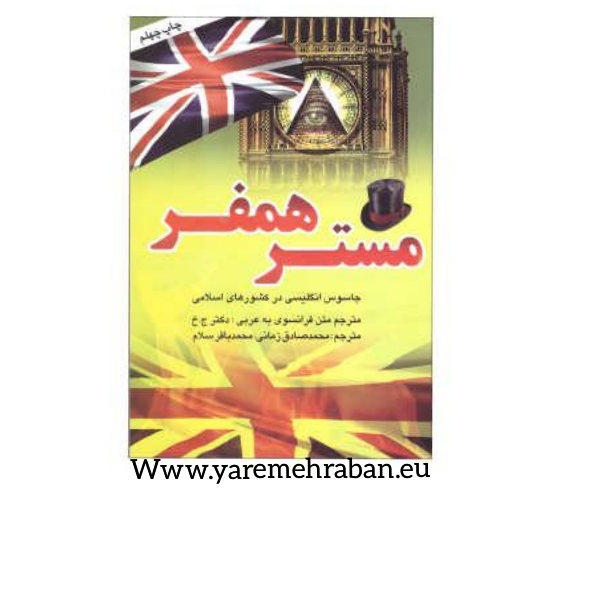
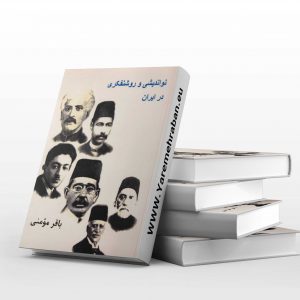

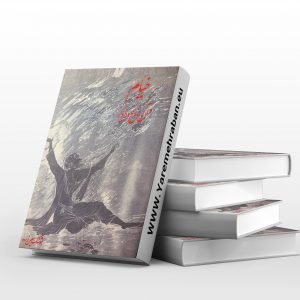

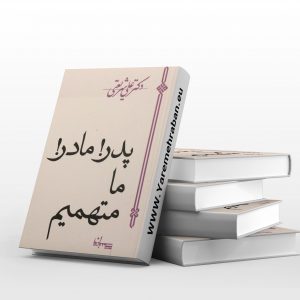
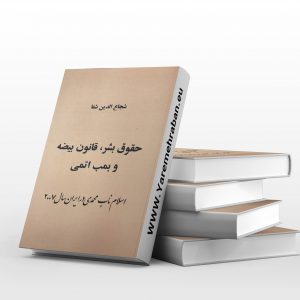


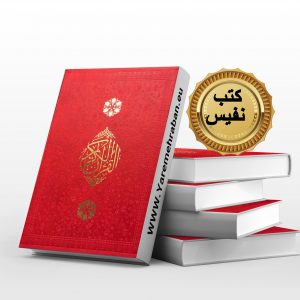
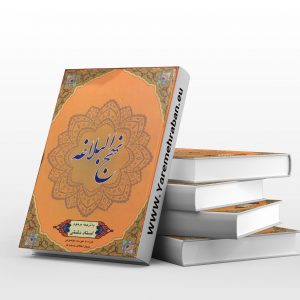

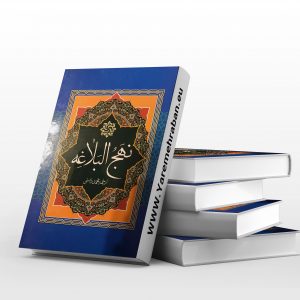
Reviews
There are no reviews yet.